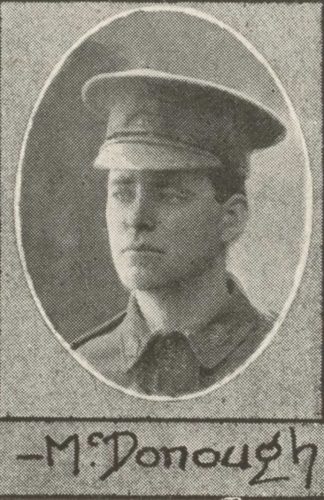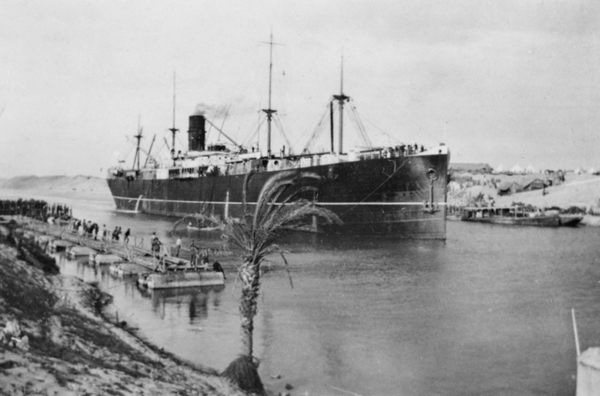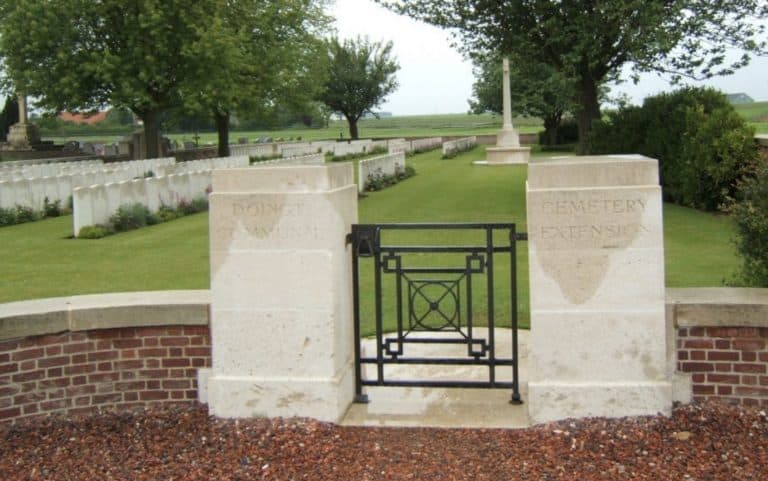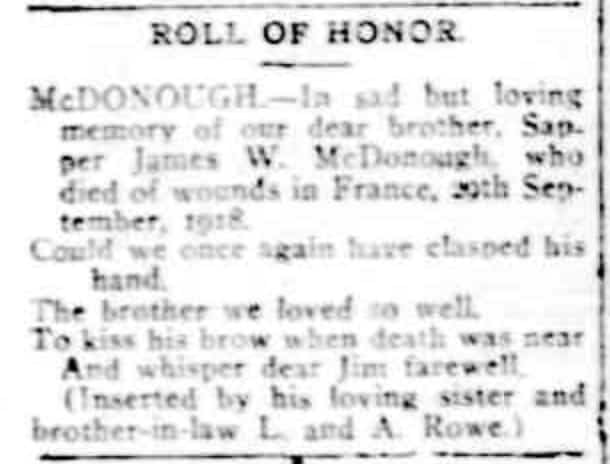James William McDONOUGH
Year of Birth: 1885
Place of Birth: Ravenswood, North Queensland, Australia
Date of Enlistment: 5 April 1916
Date and Place of Embarkation: 30 September 1916 at Melbourne, Victoria, Australia
Ship: HMAT Suffolk A23
Rank: Sapper
Unit(s): 1st Tunnelling Company
Regimental Number: 5380
Died: 29 September 1918

James William McDonough was born in Ravenswood, North Queensland to John Michael McDonough and his wife Katherine Mary (Kate) nee Miller. He was the oldest of five sons and had four sisters, ie, Elizabeth Esther (b. 1884), James William (b. 1885), John Arthur (b. 1886), Kathleen Mary (b. 1888), Percy Samuel (b. 1891), Frederick Mathew (b. 1893), Annie Amelia (b. 1895), George Michael (b. 1897) and Margaret Bride (b. 1904).
James worked as a miner in Chillagoe and Wolfram prior to enlisting on 5 April 1916. His brother, Percy, aged 24 had enlisted the week before in Townsville and embarked from Brisbane on the 21 October 1916.
James was 30 years old, single and a miner by occupation. Physically, he was 5 feet 6 inches tall, weighed 140 pounds, had a dark complexion, brown eyes and black hair. His religion was Roman Catholic. He named his mother, Kate, as his next of kin.
James left Melbourne on the 30 September 1916 on the HMAT Suffolk.

He disembarked Plymouth, England on 2 December 1916 and on 1 January 1917 proceeded to France from Folkestone, Kent with the Tunneling Reinforcements.
Over the next 18 months he was admitted to hospital at many times with bronchitis, influenza and tracheitis, finally rejoining his unit on 1 September 1918.
On 29 September, he was wounded in action and admitted to the 20th Casualty Clearing Station with multiple gunshot wounds and died the same day.
He was buried in the Doingt Communal Cemetery Extension, Somme, France.

His personal effects were returned to his mother and, eventually, his War Medals, on condition that they go to his father if he eventually claimed them. His mother had advised the authorities that she didn’t know her husband’s whereabouts.
For his sacrifice he was awarded the British War Medal and the Victory Medal.

Online Resources
NAA: B2455 (McDONOUGH J W) National Archives of Australia
Commonwealth War Graves Commission
National Library of Australia: Trove Digitised Newspapers
Australian Light Horse Studies Centre
Queensland Registrar of Births Deaths & Marriages
Ancestry.com.au: Queensland Electoral Rolls
Research by Donna Baldey (2009-2017)
If you have a photograph or further information about this soldier you would like to share and add to his biography, please contact the Society at projects@cdfhs.org or leave a comment below. Thank you!
